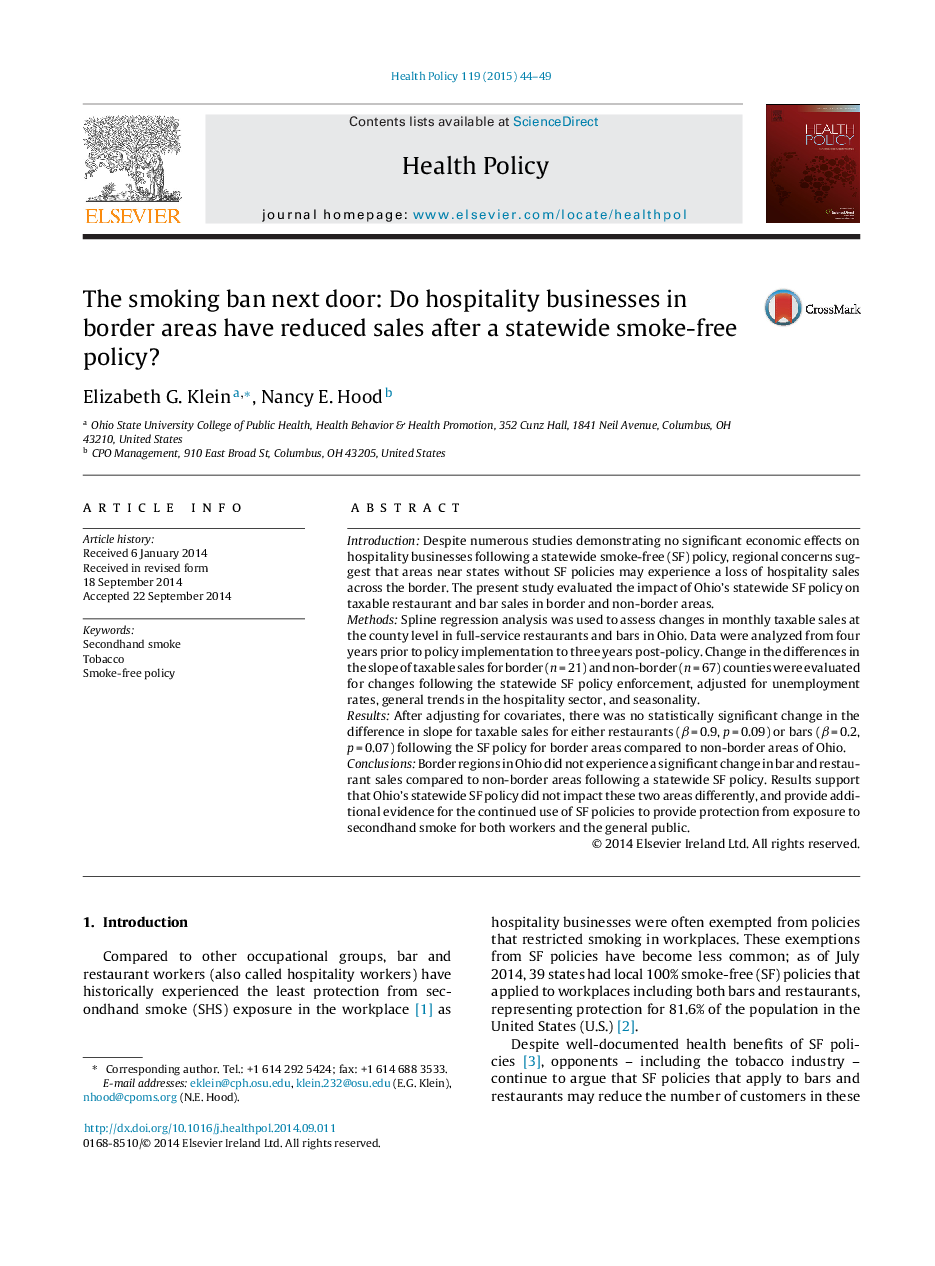| کد مقاله | کد نشریه | سال انتشار | مقاله انگلیسی | نسخه تمام متن |
|---|---|---|---|---|
| 4197790 | 1278999 | 2015 | 6 صفحه PDF | دانلود رایگان |
• This evaluation of Ohio's border counties provides a specific, robust evaluation of reductions in taxable sales revenue from patrons who flee to neighboring states without smoke-free policies for bars and full-service restaurants.
• Ohio's statewide smoke-free policy did not differentially impact the taxable sales revenue for bars or restaurants located in counties where the border is shared with five other non-smoke-free states, compared to those non-border counties.
• Results provide evidence for the continued use of smoke-free policies to provide protection from exposure to secondhand smoke for both workers and the general public.
IntroductionDespite numerous studies demonstrating no significant economic effects on hospitality businesses following a statewide smoke-free (SF) policy, regional concerns suggest that areas near states without SF policies may experience a loss of hospitality sales across the border. The present study evaluated the impact of Ohio's statewide SF policy on taxable restaurant and bar sales in border and non-border areas.MethodsSpline regression analysis was used to assess changes in monthly taxable sales at the county level in full-service restaurants and bars in Ohio. Data were analyzed from four years prior to policy implementation to three years post-policy. Change in the differences in the slope of taxable sales for border (n = 21) and non-border (n = 67) counties were evaluated for changes following the statewide SF policy enforcement, adjusted for unemployment rates, general trends in the hospitality sector, and seasonality.ResultsAfter adjusting for covariates, there was no statistically significant change in the difference in slope for taxable sales for either restaurants (β = 0.9, p = 0.09) or bars (β = 0.2, p = 0.07) following the SF policy for border areas compared to non-border areas of Ohio.ConclusionsBorder regions in Ohio did not experience a significant change in bar and restaurant sales compared to non-border areas following a statewide SF policy. Results support that Ohio's statewide SF policy did not impact these two areas differently, and provide additional evidence for the continued use of SF policies to provide protection from exposure to secondhand smoke for both workers and the general public.
Journal: Health Policy - Volume 119, Issue 1, January 2015, Pages 44–49
